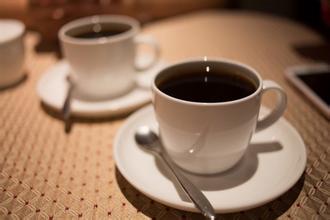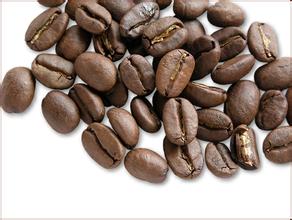The latest introduction of boutique coffee beans Costa Rican coffee
Costa Rican coffee is produced in The Republic of Costa Rica in southern Central America. Its coffee quality is similar to that of Colombia coffee, which is suitable for blending mixed coffee. Costa Rican coffee is full of particles, with ideal acidity and unique aroma. High-quality Costa Rican coffee is known as "extra-hard" and can be grown at altitudes above 1500 meters. Altitude has always been a problem for coffee growers. Coffee beans are better at higher altitudes, not only because higher altitudes increase the acidity of coffee beans and thus enhance flavor, but also because lower night temperatures at higher altitudes cause trees to grow slowly, thus making coffee beans more flavorful. In addition, due to the high altitude drop caused by sufficient rainfall, coffee tree growth is also very favorable. However, while there are many advantages to growing coffee at higher altitudes, the additional transportation costs associated with it must be taken into account, which may well make coffee production unprofitable. Costa Rican coffee has adopted new technologies to increase efficiency, including the use of "electric eyes" to select beans and identify beans of irregular size.

When brewing coffee, you should pay attention to the following points: 1. Boiling will make coffee bitter, so do not boil coffee, the appropriate brewing degree should be slightly lower than 96℃. 2. Coffee can not be reheated, brewing should pay attention to only boil the amount needed each time, and it is best to drink it when it is just cooked. 3. The best drinking temperature for coffee is 85 ° C. 4. Water accounts for 98% of a cup of coffee, so it is best to use filtered water to brew coffee, especially water containing chlorine. 5. Don't reuse coffee grounds. Brewed coffee grounds leave only an unpleasant bitter taste. 6. Make the correct coffee grinding according to the coffee maker used. Too fine grinding will make the coffee bitter and it will be easier to block the coffee maker. 7. If the coffee is ground too coarsely, the coffee will have no taste. 8. For filter-type brewing, properly ground coffee powder should be dripped for 2-4 minutes at a time. 9. Recommended dosage: 2 tablespoons round coffee powder/6 ounces water.
Important Notice :
前街咖啡 FrontStreet Coffee has moved to new addredd:
FrontStreet Coffee Address: 315,Donghua East Road,GuangZhou
Tel:020 38364473
- Prev

Hawaiian Kona coffee mellow and sour coffee beans
Mellow and sour coffee beans, unique growth and climatic environment make Hawaii Kona perfect flavor: Hawaiian beach, monsoon and volcanic flavor. Kona coffee beans produced in Hawaii are the most beautiful coffee beans in the world. they are extremely full and shiny. Kona coffee beans are evenly shaped, have a strong sour and sweet taste, and taste wet and smooth. Because of health
- Next

Introduction to the latest Culture of Java Coffee in Indonesia
Java, which belongs to Indonesia, is the fourth largest island in the country, and the capital Jakarta is located on the northwest coast of Java. In addition, java is the name of a computer language, and because Java is rich in the famous Java coffee, the computer language takes Java as its name and the steaming Java coffee as its icon. Java coffee
Related
- Detailed explanation of Jadeite planting Land in Panamanian Jadeite Manor introduction to the grading system of Jadeite competitive bidding, Red bid, Green bid and Rose Summer
- Story of Coffee planting in Brenka region of Costa Rica Stonehenge Manor anaerobic heavy honey treatment of flavor mouth
- What's on the barrel of Blue Mountain Coffee beans?
- Can American coffee also pull flowers? How to use hot American style to pull out a good-looking pattern?
- Can you make a cold extract with coffee beans? What is the right proportion for cold-extracted coffee formula?
- Indonesian PWN Gold Mandrine Coffee Origin Features Flavor How to Chong? Mandolin coffee is American.
- A brief introduction to the flavor characteristics of Brazilian yellow bourbon coffee beans
- What is the effect of different water quality on the flavor of cold-extracted coffee? What kind of water is best for brewing coffee?
- Why do you think of Rose Summer whenever you mention Panamanian coffee?
- Introduction to the characteristics of authentic blue mountain coffee bean producing areas? What is the CIB Coffee Authority in Jamaica?

